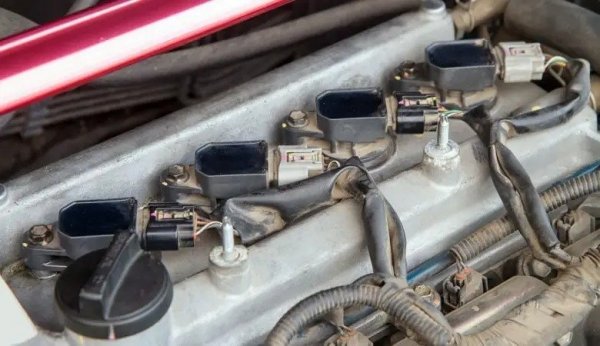Ignition Coil Failure: Here are the Warning Signs and Symptoms to Watch Out for

Ignition coil failure is a common issue in cars. However, you can easily prevent it with regular maintenance and prompt attention to warning signs and symptoms.
An ignition coil is a crucial component of a car's engine, responsible for converting the battery's low voltage to the high voltage needed to ignite the air-fuel mixture in the combustion chamber. This process allows the engine to run smoothly and efficiently. However, over time, the ignition coil can fail because of various factors such as wear and tear, corrosion, or exposure to extreme temperatures.
In this article, we will look at the common warning signs and symptoms of ignition coil failure, as well as how to diagnose, repair, and prevent the issue.
Warning signs and symptoms of ignition coil failure
There are several warning signs and symptoms of ignition coil failure. The most common ones include engine misfiring or hesitation, a decrease in fuel efficiency, a check engine light coming on, and the engine becoming hard to start as explained below:
-
Engine misfiring or hesitation
This is the most common symptom of ignition coil failure. It occurs when the ignition coil cannot generate enough voltage to ignite the air-fuel mixture in the combustion chamber. As a result, the engine may misfire, hesitate, or run rough. You can notice this when you get a rough or jerky feeling when the vehicle is accelerating.
-
Decrease in fuel efficiency
Ignition coil failure can also cause a decrease in fuel efficiency. This is because the engine is not running as smoothly as it should, causing it to use more fuel to maintain its normal performance. If you notice your car is using more fuel than usual, it may be a sign of ignition coil failure.
-
Check engine light coming on
Another common symptom of ignition coil failure is the check engine light coming on. This light alerts you when there is a problem with your car's engine. If the check engine light comes on, have your car checked by a mechanic to diagnose the problem and determine if the ignition coil is the cause.
-
Engine becoming hard to start
If the ignition coil is failing, it may become difficult to start your car's engine. The ignition coil may not be generating enough voltage to ignite the air-fuel mixture, causing the engine to struggle to turn over.
Diagnosing and Repairing Ignition Coil Failure
To diagnose ignition coil failure, a mechanic will first connect a diagnostic tool to your vehicle's computer system to retrieve any error codes and determine the source of the issue. They may also perform a visual inspection of the ignition system and conduct a compression test to check the condition of the ignition coils.
Once the problem has been diagnosed, the mechanic will discuss the repair options with you. In most cases, the faulty ignition coil will need to be replaced. Sometimes, replacing the entire ignition system may be necessary if multiple ignition coils are failing.
Preventing Ignition Coil Failure
If you notice any of the above ignition coil failure warning signs, Have your vehicle checked by a mechanic as soon as possible. Ignoring these signs can cause the issue to progress and lead to more serious problems, such as engine damage or complete engine failure. Paying attention to these warning signs and symptoms can save you time and money in the long run.
Other posts
- 5 Best Electric Bikes for Women in 2023
- The Popularity of White Cars: Why White is the New Black
- How to Choose the Best Car for Your Lifestyle and Budget
- All You Need to Know About Donut Spare tires—The Pros and Cons
- How to Maintain and Extend the Life of Your Wiper Blades
- CVT Transmission Lifespan: How Long Will It Last?
- 4 Benefits of Owning an Electric or Hybrid Car
- Understanding the Different Types of Hybrid Cars; Pros and Cons
- Check Engine Light Explained—What to Do When It Comes On
- How to Save Money on Gas by Optimizing Your Driving Habits